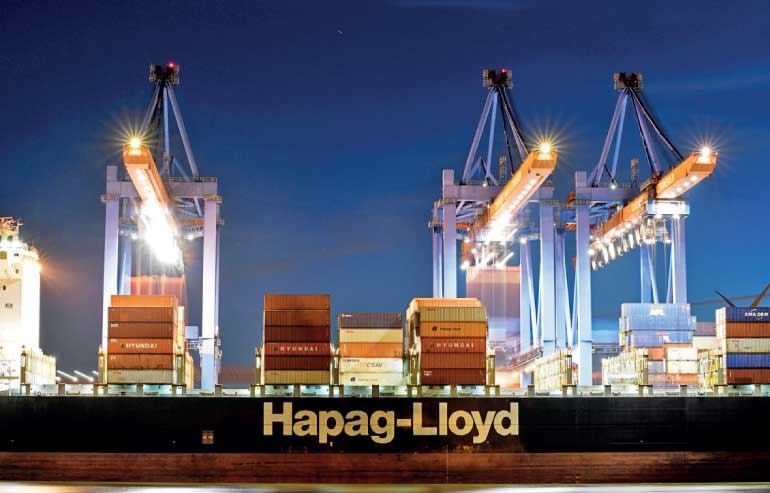Wednesday Feb 18, 2026
Wednesday Feb 18, 2026
Monday, 15 May 2017 01:15 - - {{hitsCtrl.values.hits}}

FRANKFURT (Reuters): German container shipping firm Hapag-Lloyd on Friday said it should achieve higher earnings this year, based on expectations for a moderate increase in freight rates and cost savings.
“The outlook is fairly positive,” Chief Executive Rolf Habben Jansen said in a video interview on the company’s website.
“Supply and demand are getting closer and closer together.”
The shipping industry is slowly coming out of a year-long slump that caused the collapse of South Korea’s Hanjin Shipping last year, which sent shockwaves through the industry but also triggered rising freight rates and a near absence of new orders.
Hapag-Lloyd reported a deeper net loss in the first quarter, citing increasing ship fuel costs, a phenomenon that was seen continuing, and lower freight rates, for which it forecasts a recovery in the coming quarters.
It sees a significant improvement in earnings before interest, tax, depreciation and amortisation (EBITDA) and earnings before interest and tax (EBIT) in 2017.
Its rival A.P. Moller-Maersk on Thursday said a gradual recovery in freight rates should boost full-year earnings.
Hapag-Lloyd’s first-quarter EBITDA was up 6.4 percent at 131.3 million euros ($142.6 million), while EBIT dropped by nearly a third to 3.5 million euros.
Average bunker prices of $313 a tonne were up 59 percent, their highest quarterly level since June 2015, due to higher oil prices.
Hapag-Lloyd posted a net loss for the three months of 62.1 million euros, compared with 42.8 million euros a year earlier.
Average freight rates fell $20 compared with the same 2016 quarter to $1,047/tonne but transport volumes rose 6.8 percent.
The group cautioned that the forecasts excluded possible revenue and earnings effects of the consolidation of Arab peer UASC, with which it expects to merge by the end of May.